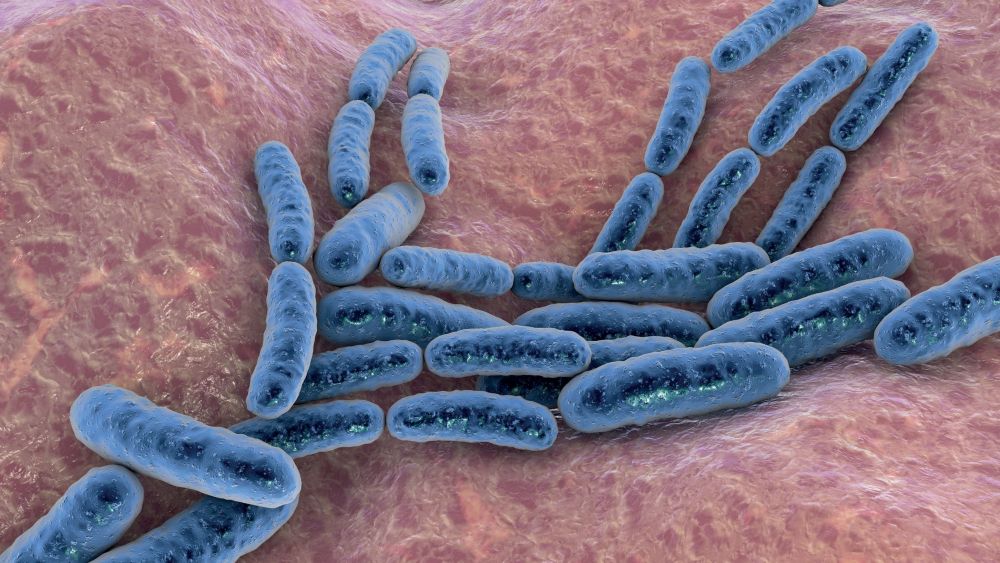Acute gastroenteritis (AGE) is an important pediatric health problem. Although mortality rates have declined significantly in developed countries due to vaccination and early care, AGE carries significant social and health costs, primarily from emergency room and pediatrician visits.
In Europe, children under 3 years old have an incidence of 0.5 to 2 episodes of diarrhea per year, and gastroenteritis is one of the leading causes of hospitalization in this age group.1.
The most common cause is viral (mainly rotavirus) and diagnosis is clinical (routine diagnostic testing is not required). Most of the time, it presents as acute, self-limiting diarrhea that resolves within two weeks and may be accompanied by vomiting, abdominal pain, and/or fever.1.2which can cause considerable physical and emotional discomfort for the patient, as well as worry and anxiety for the parents, who obviously want it resolved as quickly as possible.
The use of probiotics as supportive care to shorten the duration of acute diarrhea is widely accepted
The cornerstone of treatment for acute diarrhea is early oral rehydration, which usually does not require major changes in diet.1. The use of probiotics as supportive therapy to shorten the duration of these processes is widely accepted. However, it would be incorrect to universally attribute this efficacy to all probiotics, as the term covers a heterogeneous group of live bacteria with specific properties that depend on species, strain and dose.3. This year’s 2023 update of the World Guidelines for Gastroenterology (WGO) states that probiotic recommendations should refer to specific strains that have been shown to have specific benefits in human studies. Likewise, the level of quality of evidence underlying each specific recommendation will vary depending on the type of study.4.
Lactobacillus reuteri DSM 17938 has been shown to reduce the duration of diarrhea by nearly 1 day and increase cure rates on the second day of treatment compared to placebo
WGO awarded Evidence level 1 (Highest level of evidence) Lactobacillus reuteri strain DSM 17938 in AGE in children, in Dosage from 1 x 108 to 4 x 108 cfu/day for 5 days4. This level of evidence is an improvement from the level 2 awarded in the previous version of the guidelines in 2017, and is only recognized when a treatment is supported by a well-conducted systematic review or meta-analysis.5. This is consistent with WGO assignments to other strains sold in Spain; however, For the rest of the probiotics, it is recommended to treat for 5-7 days4.

On the other hand, the European Society for Pediatric Gastroenterology, Hepatology and Nutrition (ESPGHAN) updated its recommendations in 2022, which states: Lactobacillus reuteri DSM 17938 has been shown to reduce the duration of diarrhea by nearly 1 day and increase cure rates on the second day of treatment compared to placebo6. In fact, in one published study, 74% of children had no diarrhea the next day, compared with 19% in the placebo group7.For other probiotics with evidence of reducing the duration of diarrhea, ESPGHAN noted that there was significant statistical heterogeneity because the strains used were not always identified in their studies, so several strains of the same species strains may be analyzed together in a methodological approach that is not recommended6.
Finally, as every good pharmacist knows, as important as choosing an effective probiotic strain with the highest level of evidence is recommending the most appropriate dosage form for the patient’s age and condition, taking into account appearance (drops) formulations, bags, chewable tablets…) and flavor.
Medication advice and personalized service are hallmarks of pharmaceutical services and will play a decisive role in the effectiveness of probiotics.
bibliography
- Guarino A, Ashkenazi S, Gendrel D, Lo Vecchio A, Shamir R, Szajewska H; European Society of Pediatric Gastroenterology, Hepatology and Nutrition; European Society of Pediatric Infectious Diseases. European Society of Pediatric Gastroenterology, Hepatology and Nutrition/European Society of Pediatric Infectious Diseases Evidence-based guidelines for the management of acute gastroenteritis in children in Europe: 2014 update. J Pediatr Gastroenterol Nutr. 2014;59(1):132-152.
- Hartman S, Brown E, Loomis E, Russell HA. Gastroenteritis in children. I’m a family doctor. 2019;99(3):159-165.
- Patro-Gołąb B, Szajewska H. Systematic review and meta-analysis: Lactobacillus reuteri DSM 17938 for the treatment of acute gastroenteritis in children. renew. Nutrients. 2019;11(11):2762.
- Guarner F, Khan AG, Garisch J, Eliakim R, Gangl A, Thomson A, et al. World Gastroenterology Organization global guidelines. Probiotics and prebiotics. World Government Organization. 2023;1-20.
- Howick J, Chalmers I, Glasziou P, Greenhalgh T, Heneghan C, Liberati A, et al. Oxford Level of Evidence 2. Oxford Center for Evidence-Based Medicine. 2023. Available at: https://www.cebm.ox.ac.uk/resources/levels-of-evidence/ocebm-levels-of-evidence
- Szajewska H, Berni Canani R, Domellöf M, Guarino A, Hojsak I, Indrio F, et al; ESPGHAN Special Interest Group on Gut Microbiota and Modifications. Probiotics for the treatment of pediatric gastrointestinal disease: a position paper from the ESPGHAN Gut Microbiota and Modification Special Interest Group. J Pediatr Gastroenterol Nutr. 2023;76:232-247.
- Shornikova AV, Casas IA, Isolauri E, Mykkänen H, Vesikari T. Lactobacillus reuteri as a therapeutic agent for acute diarrhea in young children. J Pediatr Gastroenterol Nutr. 1997;24(4):399-404.

